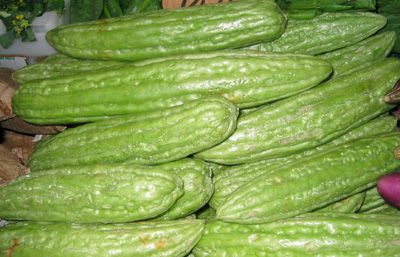Juice From Bitter Melon Prevents Human Pancreatic Cancer In Mice

Experiments in mice showing that extract from the Asian melon can block the growth of cancerous cells comes three years after similar results were seen in breast cancer cells in vitro, in culture dishes.
"Three years ago researchers showed the effect of bitter melon extract on breast cancer cells only in a Petri dish. This study goes much, much farther. We used the juice - people especially in Asian countries are already consuming it in quantity. We show that it affects the glucose metabolism pathway to restrict energy and kill pancreatic cancer cells," says Rajesh Agarwal, PhD, co-program leader of Cancer Prevention and Control at the CU Cancer Center and professor at the Skaggs School of Pharmacy and Pharmaceutical Sciences.
Pancreatic cancer is one of the deadliest forms of cancer, having a high mortality rate because it is not easily detected. Yearly there are 45,220 new cases and 38,460 deaths yearly in the US. The one year survival rate is 26% while the 5 year survival rate is 6% after diagnosis.
Researchers saw a 60% reduction of the ability of human pancreatic cancer cells to grow in mice that had been transferred with the cancerous cells. The researchers also saw the same results on pancreatic cancer cells grown in petri dishes in laboratory conditions.
The juice works by preventing the cells from metabolizing glucose and essentially starving the cancerous cells from their energy source while leaving non-cancerous cells alone. The reason this works is because cancer cells rely mostly on glucose for energy because they have problems producing alternate forms of energy themselves.
"It's a very exciting finding," Agarwal says. "Many researchers are engineering new drugs to target cancer cells' ability to supply themselves with energy, and here we have a naturally-occurring compound that may do just that."
The report published in the journal Carcinogenesis can be found here.
Published by Medicaldaily.com



























